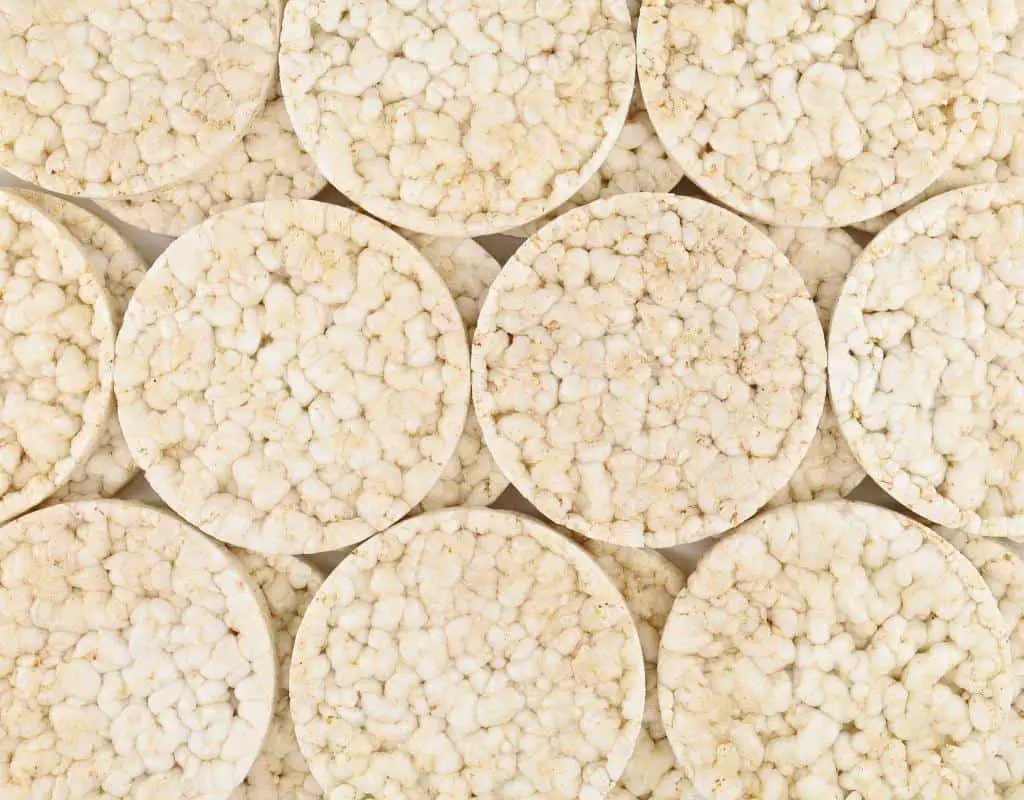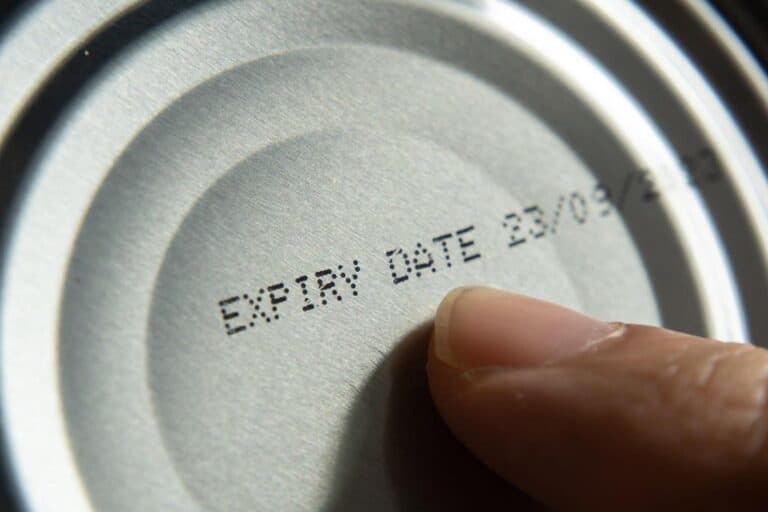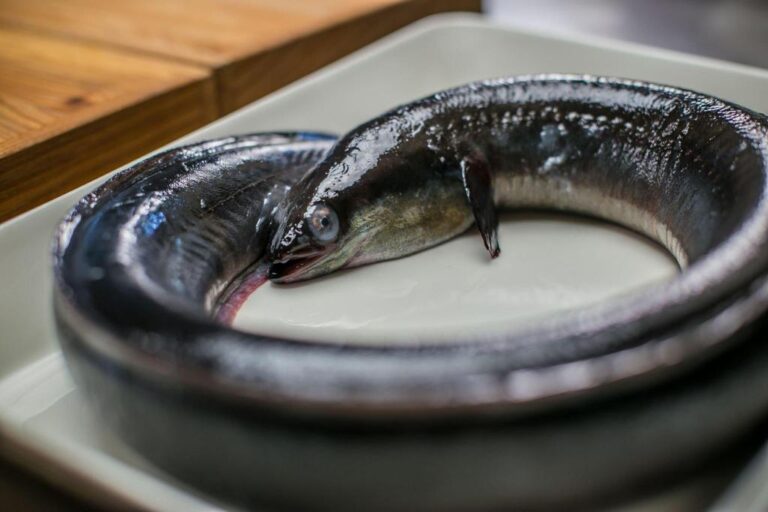What Happens If You Eat Expired Rice Cakes? Are They Save to Eat?

Rice cakes have become a popular snack choice for health-conscious people due to their low-calorie content and versatility. They’re a perfect base for a wide range of toppings, from sweet to savory, making them a convenient and healthy snack option.
However, like all foods, rice cakes do have a limited shelf life, and it’s essential to know what happens if you eat expired rice cakes. So, what happens if you accidentally eat expired rice cakes?
In this article, we’ll explore how long rice cakes last after opening, what happens when you eat expired rice cakes, and whether or not it’s safe to eat them. We’ll also provide tips on how to store rice cakes properly and how to tell if they’ve gone bad.
Understanding Rice Cakes and Its Shelf Life
Rice cakes are made from puffed rice that has been compressed and molded into a circular shape. They are a popular snack choice because they are low in calories, contain no cholesterol, and are gluten-free. Rice cakes are also a good source of fiber, which can help regulate digestion and promote feelings of fullness.
Rice cakes have a relatively long shelf life compared to other snack foods. However, a variety of factors, such as the humidity and temperature of the storage environment, can affect their shelf life.
How Long Do Rice Cakes Last After Opening?
The shelf life of rice cakes depends on several factors, including the storage conditions, the type of rice used, and the presence of additives or preservatives. In general, unopened rice cakes can last up to six months or more, depending on the manufacturer’s packaging and expiration date. However, how long can you eat rice cakes after opening them? Once you open a pack of rice cakes, their shelf life reduces significantly to a maximum of one month.
Rice cakes can become stale and lose their flavor and texture over time. If not stored properly, they can also become exposed to moisture and humidity, leading to mold growth and spoilage. As a general rule of thumb, most rice cakes will last for about one month after opening if stored correctly.
Factors that Affect the Shelf Life of Rice Cakes
Several factors can affect the shelf life of rice cakes, including:
- The type of rice used: Brown rice cakes tend to spoil faster than white rice cakes because they contain natural oils that can go rancid over time.
- Additives or preservatives: Some rice cakes contain additives or preservatives that can extend their shelf life.
- Exposure to air: Rice cakes can become stale and lose their flavor and texture if exposed to air for prolonged periods.
- Moisture and humidity: Rice cakes can become exposed to moisture and humidity, leading to mold growth and spoilage.
Storage Conditions for Rice Cakes
Proper storage conditions are crucial for extending the shelf life of rice cakes. Here are some tips on how to store rice cakes correctly:
- Keep them in a cool, dry place away from sunlight and heat sources.
- Store them in an airtight container or resealable bag to prevent exposure to air and moisture.
- Do not store them in the refrigerator, as this can cause the rice cakes to become hard and lose their texture.
- Keep them away from strong-smelling foods or foods that can cause cross contamination.
The Risks of Eating Expired Rice Cakes
Consuming expired rice cakes can pose several potential health risks. Here are some of the risks that you may face if you eat expired rice cakes:
- Food Poisoning: The most common risk of eating expired rice cakes is food poisoning. When rice cakes become stale, they may start growing harmful bacteria like Salmonella, E. coli, or Listeria, which can lead to foodborne illnesses such as vomiting, nausea, abdominal cramps, and diarrhea.
- Allergic Reactions: Eating expired rice cakes may cause allergic reactions in some people. The mold or fungus growth on the rice cakes can produce mycotoxins, which may trigger allergic reactions in individuals who are sensitive to them.
- Aflatoxin Poisoning: Aflatoxins are a type of mycotoxins produced by certain molds that can grow on rice cakes. Aflatoxin poisoning can cause liver damage, liver cancer, and other serious health issues.
- Risk of Choking: When rice cakes become expired, they lose their crunchiness and become chewy, making them harder to swallow. Eating expired rice cakes can increase the risk of choking, especially in young children or older adults.
- Risk of Malnutrition: Rice cakes are a low-calorie and low-nutrient food item. When they expire, they lose their nutritional value, which can lead to malnutrition if consumed regularly.
How to Tell if Your Rice Cakes Have Expired or Gone Bad
Knowing how to determine if your rice cakes are expired can help you avoid the potential risks of eating them. Here are some ways to tell if your rice cakes are expired:
- Check the Expiration Date: Always check the expiration date on the package before consuming rice cakes. If the date has passed, discard the rice cakes immediately.
- Smell Test: If your rice cakes have a moldy or stale smell, they may have expired. A fresh and pleasant smell indicates that the rice cakes are still good.
- Visual Inspection: Check the rice cakes for any signs of mold or discoloration. If the rice cakes are discolored or have mold on the rice, they may be expired.
- Texture Test: If the rice cakes feel soft and mushy, they are likely expired. Fresh rice cakes should be crunchy and firm.
If you notice any signs of spoilage, it is best to discard the rice cakes and not consume them. Eating expired rice cakes can put you at risk of food poisoning and other health issues.
How to Store Rice Cakes to Prolong Their Shelf Life
Proper storage is crucial to prolonging the shelf life of rice cakes. If you store them correctly, they can last longer and retain their flavor and texture.
One way to store rice cakes is to keep them in an airtight container in a cool, dry place. Exposure to moisture and air can cause rice cakes to become stale and moldy, so it is best to store them in a sealed container.
You can also freeze rice cakes to extend their shelf life. Place the rice cakes in a freezer-safe container or bag and store them in the freezer. When you are ready to eat them, simply thaw them at room temperature for a few minutes, and they will be ready to consume.
Conclusion
Rice cakes are a delicious and healthy snack, but it is important to consume them before their expiration date to avoid the risk of food poisoning and other health issues. Always check the expiration date before consuming rice cakes, and discard them if they have expired or show any signs of spoilage. Proper storage is also important in prolonging the shelf life of rice cakes, so make sure to store them in an airtight container in a cool, dry place or freeze them to extend their shelf life.
FAQs
What is the best way to store rice cakes?
Store rice cakes in an airtight container in a cool, dry place away from sunlight and moisture
Can you freeze rice cakes?
Yes, you can freeze rice cakes to extend their shelf life. Wrap them tightly in plastic wrap and store them in a freezer-safe bag or container.
Can you eat rice cakes after the expiration date?
No, it is not recommended to eat rice cakes after the expiration date as they may have gone bad and can cause health risks.






